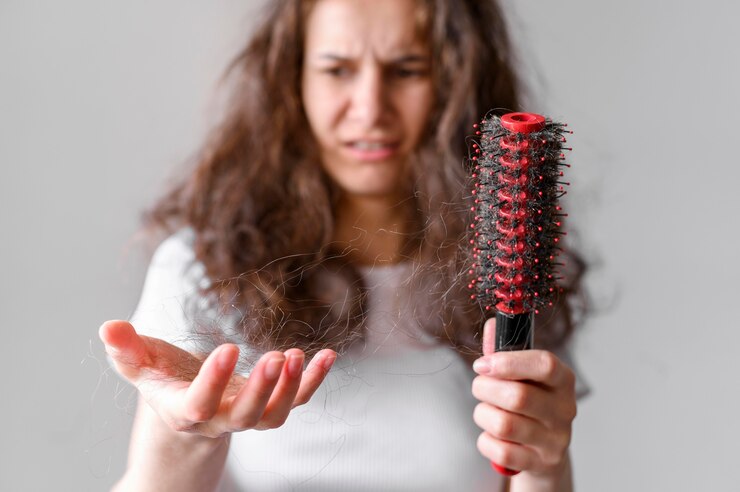
Hair loss has become a common issue these days and seems to be getting worse over time. But it’s not just about losing hair—it often brings bigger struggles like a drop in confidence, poor self-esteem, and even stress-related conditions. You might find yourself wondering, “Why is this happening to me?”
Most of the time, we focus on finding quick fixes for hair loss but rarely pause to understand what’s causing it in the first place. Identifying these causes can help you prevent hair fall before it becomes a major problem. Here are five leading causes of hair loss, along with ways to identify them and practical steps you can take to address them:
1. Poor Blood Circulation in the Scalp
Just like the rest of your body relies on good blood circulation to stay healthy, your scalp also needs consistent blood flow to support healthy hair growth. Blood delivers essential nutrients and amino acids, which are crucial for producing proteins like collagen and keratin that give hair strength and health. Without proper blood circulation, these nutrients won’t reach your scalp, leading to hair fall.
Several factors can reduce blood flow to the scalp, including pollution, smoking, and poor diet. The good news is these issues can be controlled with some effort. Reducing smoking, eating a balanced diet, and avoiding polluted environments can make a difference.
Additionally, certain exercises can boost blood circulation, such as yoga poses like headstands and other inversions. Regular scalp massages also help improve blood flow, relieve stress, and strengthen both your scalp and hair.
2. Hormonal Imbalance
Hair loss isn’t always triggered by external factors; hormonal changes can also play a big role. For instance, the enzyme 5-alpha reductase converts testosterone into dihydrotestosterone (DHT), a hormone linked to hair loss in people genetically prone to it. DHT can shrink hair follicles over time, resulting in thinner hair and, eventually, baldness. Men are more likely to experience this because their bodies naturally produce more testosterone than women.
Some people address this issue with medications, while others go for procedures like hair transplants or specialized treatments for better results.
Another hormone-related cause of hair loss is an underactive thyroid gland. If your thyroid isn’t functioning properly, it can lead to thinning hair. It’s important to address thyroid issues through proper medical treatment, as resolving the root problem can also help with hair loss.
3. Stress and Anxiety
It might be easy to overlook, but stress and anxiety are major culprits behind hair loss. While our bodies can handle short-term stress, chronic stress can wreak havoc on our health, and hair loss is one of its side effects. Prolonged stress can disrupt hormonal balance and elevate DHT levels, further impacting hair follicles and slowing down hair growth.
Managing stress levels is crucial. Activities like yoga, meditation, and even taking time to read or relax can help reduce stress and improve overall well-being. Keeping stress in check not only benefits your body but also helps your hair stay healthy.
4. Unhealthy Diet
Think your food choices only affect your body? Think again—your diet has a direct impact on your hair’s health too. Hair needs the same nutrients your body does, such as proteins, vitamins, minerals, and fiber, to grow and stay healthy.
To support healthy hair growth, your diet should include foods rich in Vitamin C (fruits), iron (vegetables), zinc (whole grains), proteins (pulses), and healthy fats found in nuts and dry fruits. Meat and dairy are also excellent for sebum production, an oil naturally created in the scalp that supports hair growth. Following a balanced diet ensures your hair gets the nourishment it needs to thrive.
5. Hair Care Routine
Lastly, your hair care habits play a critical role in preventing hair loss. Simple changes like using the right shampoo, avoiding excessive heat or harsh treatments, and keeping your scalp clean can make a big difference in maintaining healthy hair. Gentle handling, along with natural remedies, can protect your hair from further damage and help it regenerate over time.
In conclusion, fighting hair loss isn’t about quick fixes—it’s about understanding the underlying causes and taking consistent steps to address them. Whether it’s improving your circulation, balancing your diet, managing stress, or reevaluating your hair care routine, each effort brings you closer to healthier, stronger hair.